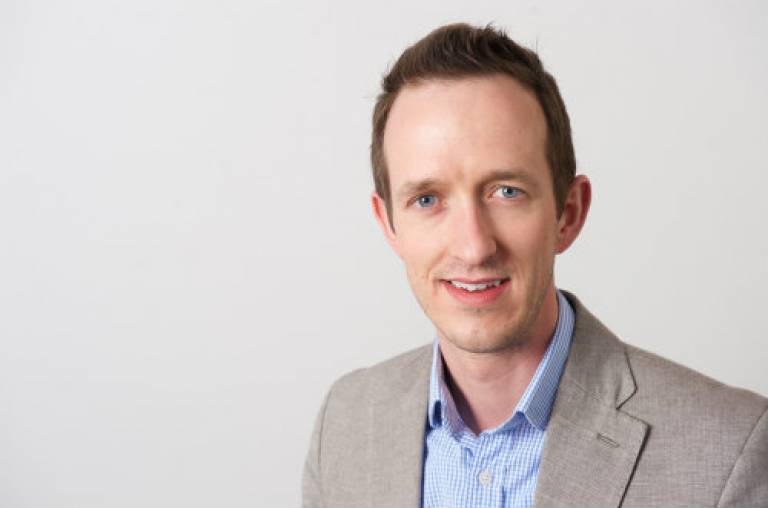Q&A with Dr Brent Carnell
19 May 2015

Dr Brent Carnell, Senior Teaching Fellow (Connected Curriculum) discusses his thoughts on teaching, technology and the future of Higher Education.
What are you working on at the moment?
It’s such an exciting time at UCL, which means I have so much on the go. It’s sobering and challenging to stop and think! I find myself offering quite a bit of time to Connected Curriculum working groups, and attending others, as well as meeting with colleagues wanting to learn more about Connected Curriculum. I have an article manuscript I need to put the finishing touches on, which is on peer assessment, and I also have a few reports that are beckoning! I’m also starting a small qualitative research project on the holistic physical university and research based education.
What advice would you give to someone looking to develop the way they teach?
Make it enjoyable and relevant – not just for your students but also for you, the teacher. Separate to my work on Connected Curriculum, I coordinate a third year dissertation module at The Bartlett School of Architecture. In that module I implemented peer feedback into all draft formative feedback sessions. The students found it so rewarding. Indeed it really made the year much more fun. The other thing I’d recommend is to get rewarded with a fellowship from the Higher Education Academy. UCL Arena, which I also teach on, is really quite an enjoyable and creative way to gain recognition.
What piece of technology do you find invaluable in your teaching?
This sounds like I’m a luddite, which isn’t true: the printer. While many of us could do with shorter, smarter, and fewer projected presentations, you really can’t beat a selected and relevant hand out in some cases. The dissertation module that I teach, in particular, is much like independent study with many opportunities for formative feedback. I couldn’t do without seeing a printed copy of the dissertation. It’s also much more helpful for the student to be able to engage with helpful feedback on an essay draft, rather than in digital form; of course verbal feedback is also essential.
How do you expect higher education to change in the next five years?
I think there’s going to be much more expectation from students, parents, funders, and the government, that higher education is relevant and efficient – relevant to the career one hopes to enter into, but also relevant for employment in an increasingly competitive, globalised, interdisciplinary and uncertain future. With tuition fees as high as they are, and sadly likely to go up, very few will be able to afford anything but a connected and future-proof education. I’m quite proud to be part of the UCL Connected Curriculum, which really espouses these ideas in its goal to enhance education through participation in research and enquiry.
What achievement are you most proud of?
Oh that’s a hard one. As of recent, I have been very proud to play leading role on Connected Curriculum and this major change at UCL. In such a short time it feels like we’ve done so much.
Dr Paul Greening (UCL Civil, Environmental and Geomatic Engineering) asks “is it possible to get students to engage with formative assessment?”
Definitely. As suggested above, having the students participate in offering peer non-assessed feedback is a really good way to get them to engage with formative feedback. It has worked best for the course I teach because it’s relatively small, but also in that students have the chance to get used to it – as a one off-exercise, providing constructive and helpful feedback while feeling confident can be challenging.
What questions would you like to pose to the next interviewee?
Thinking back to your own higher education, can you offer one key memory of experiencing good teaching? Has that informed you or your teaching?
 Close
Close

